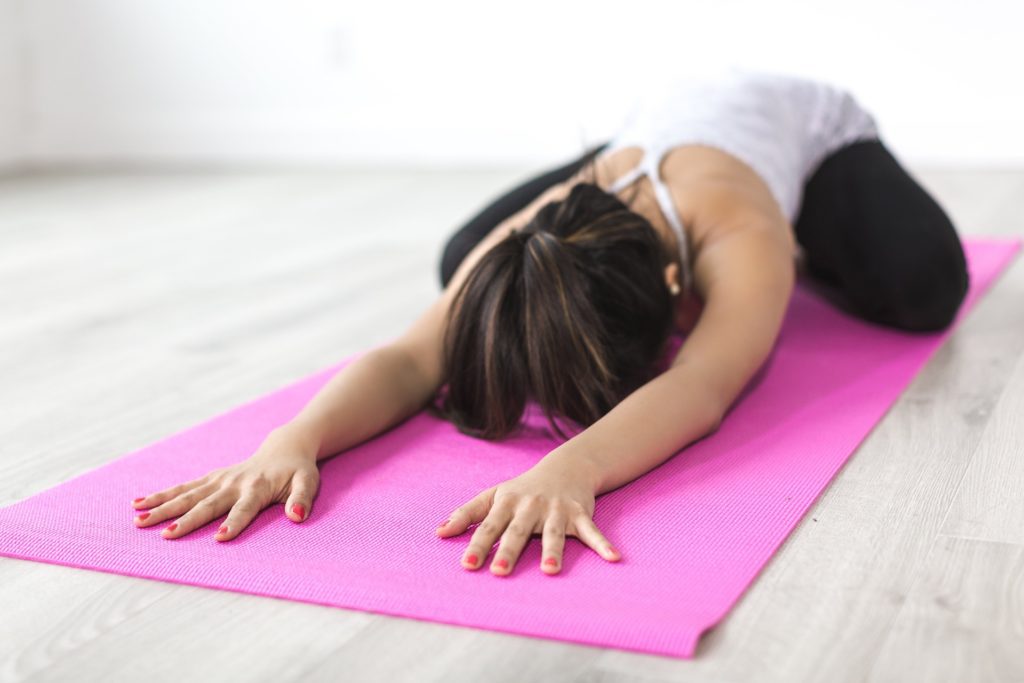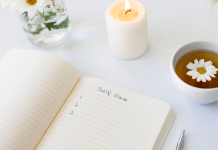 How many times a day do you hear, “Life is just crazy right now” or “I feel like I’m always running!”? We live in a society that is over-scheduled, over-committed, and chronically fatigued. It is not popular to have free time on your hands or have a day of rest anymore. Even Sundays in our house are days to catch up on folding laundry or meal planning for the week. While I should have a separate post about why we should build in rest time to our schedules and say “no” more often, I thought addressing stress and anxiety would initially be more helpful.
How many times a day do you hear, “Life is just crazy right now” or “I feel like I’m always running!”? We live in a society that is over-scheduled, over-committed, and chronically fatigued. It is not popular to have free time on your hands or have a day of rest anymore. Even Sundays in our house are days to catch up on folding laundry or meal planning for the week. While I should have a separate post about why we should build in rest time to our schedules and say “no” more often, I thought addressing stress and anxiety would initially be more helpful.
 That said, I’m not a doctor or a psychologist. My background is in Physical Therapy. I understand how the human body works, but most of my knowledge on lifestyle comes from my own research and experience. I’ve suffered from anxiety since my first daughter was born 4.5 years ago. I was offered medication, but instead I chose to look at some changes I could make in my day to day life. I started with things I already knew. I knew I should be exercising most days of the week and eating healthfully. The more research I did, the more I was astounded about what I didn’t know.
That said, I’m not a doctor or a psychologist. My background is in Physical Therapy. I understand how the human body works, but most of my knowledge on lifestyle comes from my own research and experience. I’ve suffered from anxiety since my first daughter was born 4.5 years ago. I was offered medication, but instead I chose to look at some changes I could make in my day to day life. I started with things I already knew. I knew I should be exercising most days of the week and eating healthfully. The more research I did, the more I was astounded about what I didn’t know.
There are so many other aspects to our health than diet and exercise.
While those things are important, it’s equally important to look at our sleep, our relationships, our spirituality, our finances, and our awareness of where our health is. All of these things affect our stress level. There are a lot of things in this life that we don’t have control over. But we do have choices that we can make on a daily basis, and those choices can dramatically impact your emotional health and subsequently affect all of your relationships.
Here are some of the things that I have learned do to that keep my stress level in check. Bonus – they are all free!
Exercise
You don’t need to have a membership to a fancy yoga studio or club to exercise. Moving on a daily basis reduces cortisol levels and releases endorphins. I have found that the best types of exercise for reducing stress are walking or jogging outdoors and yoga. If you don’t have the time or the means to attend yoga classes, pick a few poses to do on your own at home. Deep squatting is one of my favorites because it specifically helps with anger. I may or may not have been found deep squatting at my kitchen at 5pm some evenings while my one- and four-year-old are screaming. Prayer and pigeon poses are also highly relaxing and great to do before bed.
Get Outside
There are multiple reasons why being outdoors can decrease stress. If you can get some sunshine early in the morning, your circadian rhythms will be more on track. This will help you sleep better at night. Secondly, it is crucial that we get vitamin D from the sun. This is why some people feel blue during the winter. And lastly, being in nature is highly therapeutic. There are many days where I feel overwhelmed and fatigued, but after spending 30-40 minutes outside my mood and energy levels drastically change!
Find a Steady Nightly Ritual
For me this includes reading, bathing and prayer. It could be different for you, but there is sufficient research behind taking a hot bath before bed, then letting your body slowly cool down. I add Epsom salts and essential oils to my bath most nights for detox and relaxation (these aren’t free, but I thought I would add them in anyway).
Clean Up Your Diet
While I could spend a whole day talking about diet, I’ll keep this short: less sugar, processed foods and animal protein. Eating close to nature will not only help you eliminate the foods you shouldn’t be eating, but eating more fruits and vegetables is important to fill in the nutrient gaps.
Cut Down on Caffeine and Alcohol
Both of these affect how much melatonin your body makes which impairs the quality of your sleep. So even if you’re sleeping eight hours a night you may still feel sluggish during the day. And when you’re feeling tired, you’re more prone to losing your patience and having angry outbursts. If you choose to drink caffeine, stick to one cup per day before 10am or choose tea. If you choose to drink alcohol, make sure it’s at least three hours before bed. If you want to kick your alcohol habit altogether, check out this post by Dr. Sara Gottfried. While wine feels really good going down, it can actually increase anxiety in the long run! The best I have felt since having kids is when I went cold turkey on caffeine and alcohol. It wasn’t easy initially, but I felt amazing after a couple of weeks!
Meditation/Journaling
I put these two categories together because I think they go hand in hand. Being intentional about our feelings creates “space” in our head to cope with everyday stress. One of my favorite apps is called Headspace. You can choose which type of meditation and how long. It has been very helpful for me in times of high stress. Journaling is also a healthy habit to adopt for your current and long term health. Writing a gratitude and forgiveness journal can eliminate feelings of resentment and bitterness that are the root causes of our stress.
















